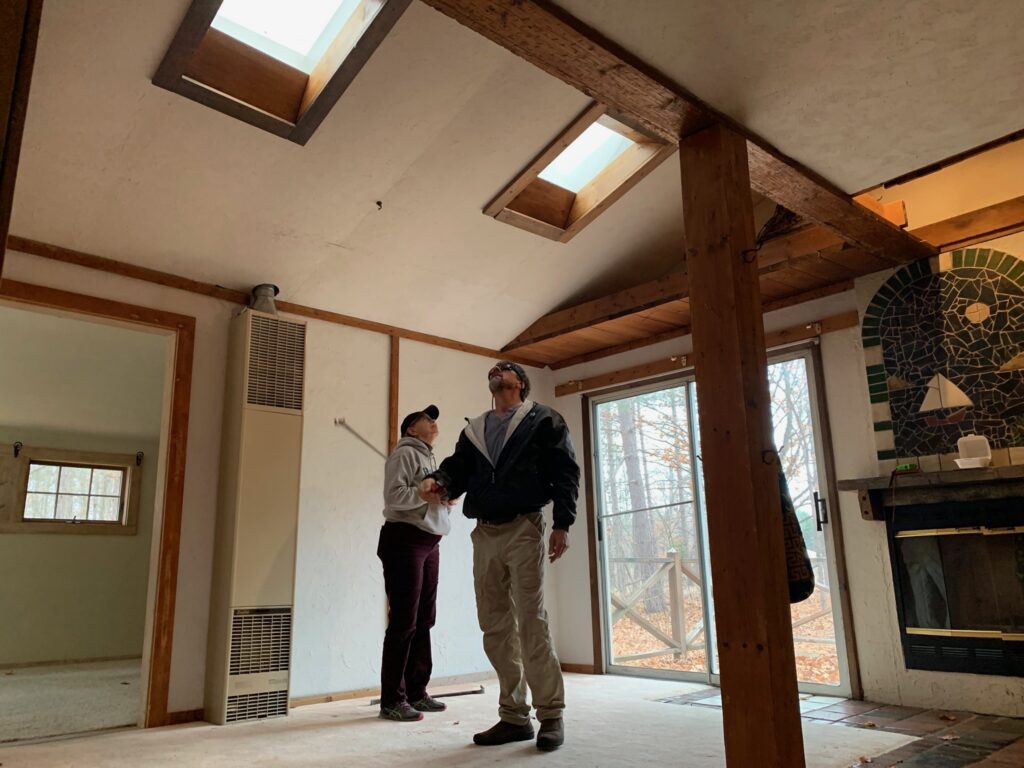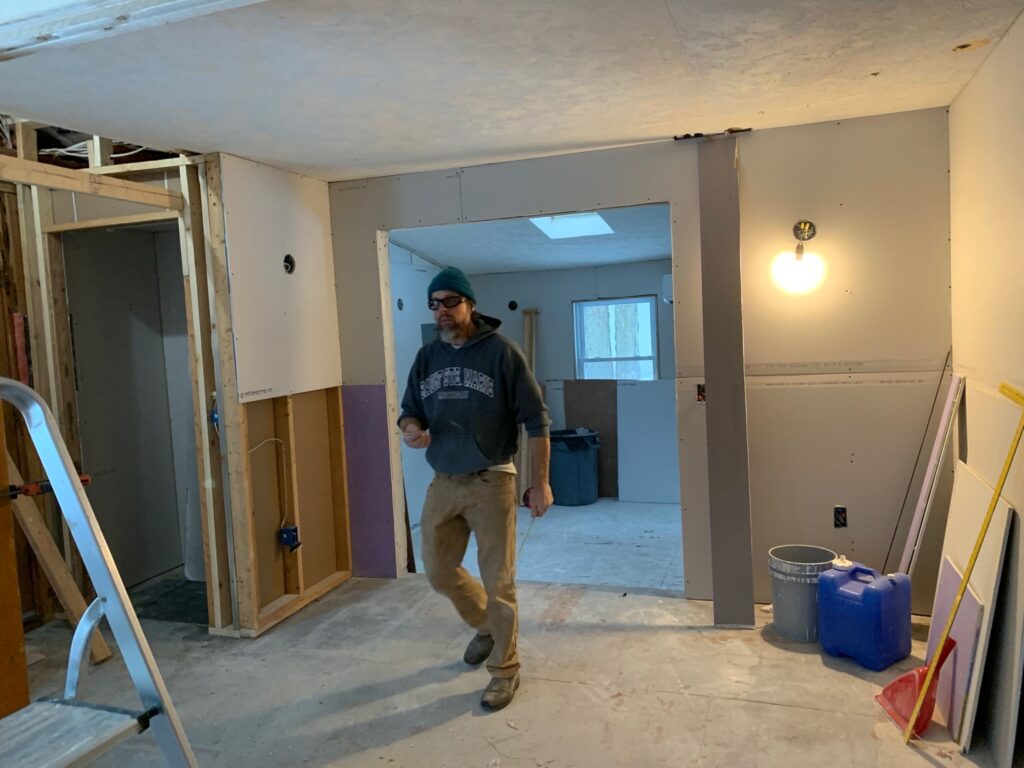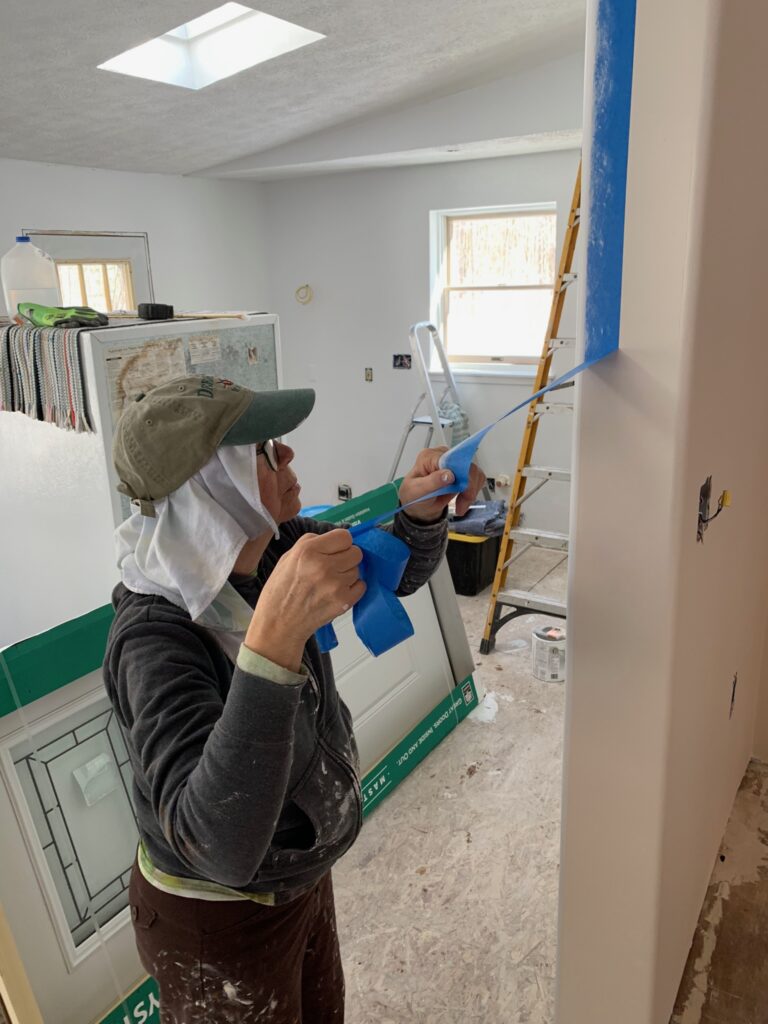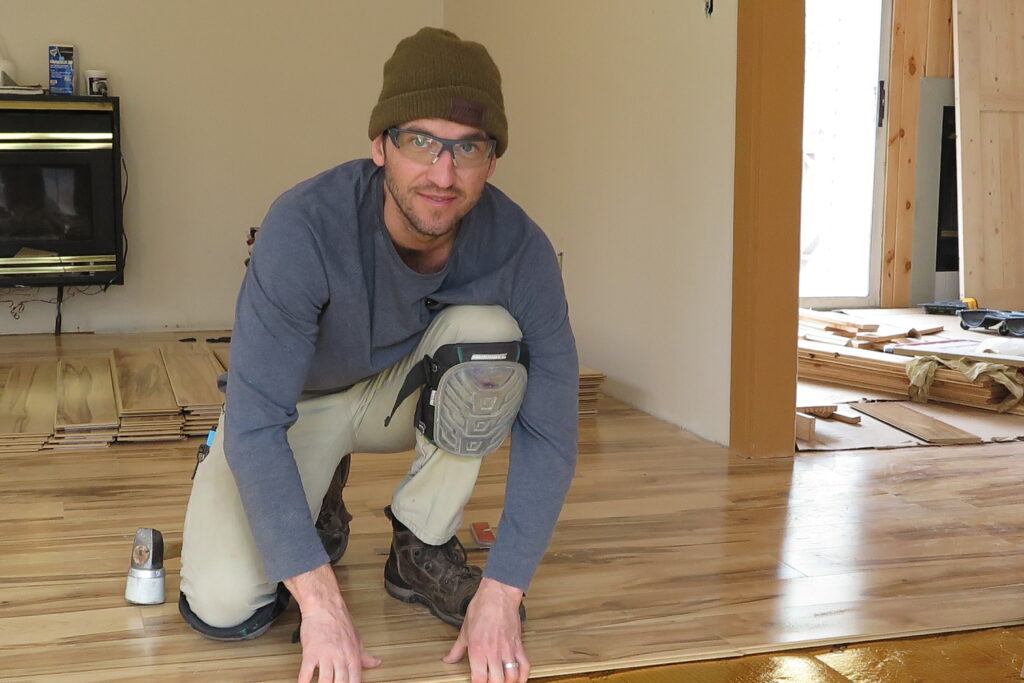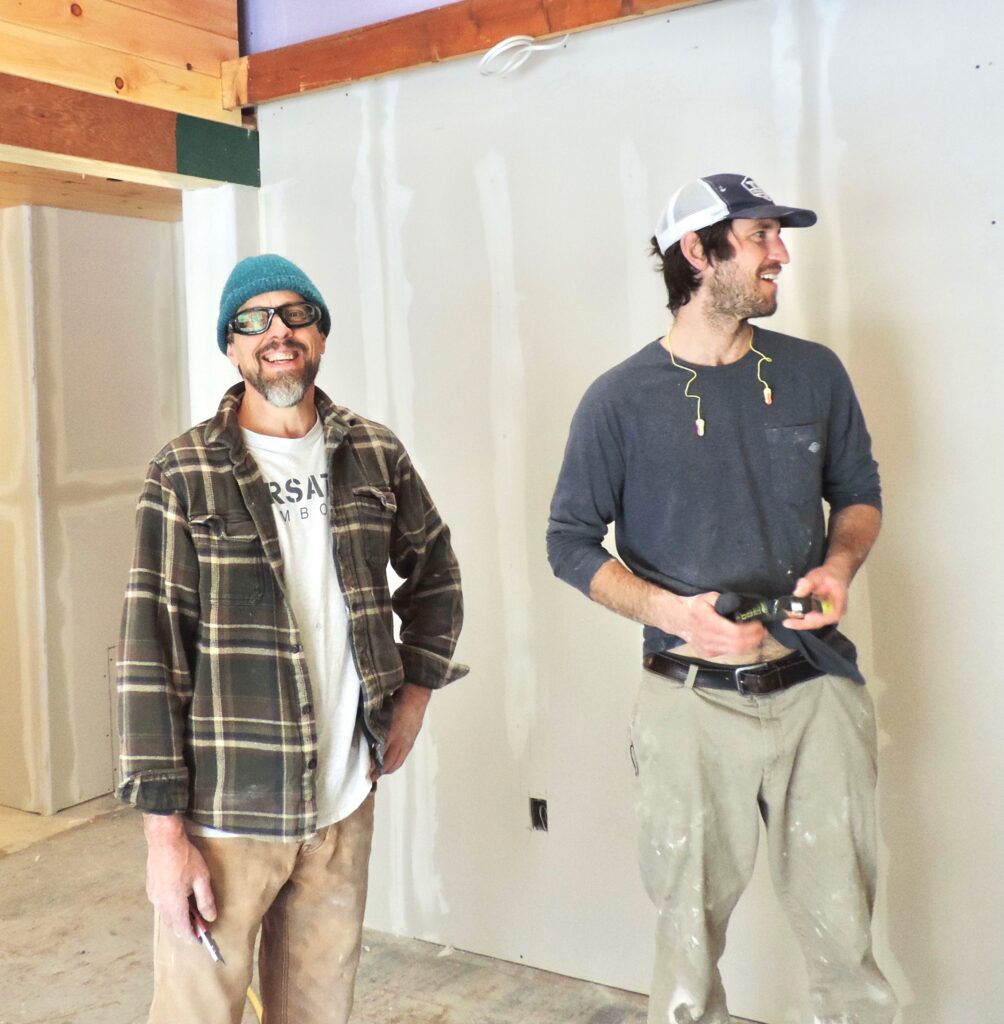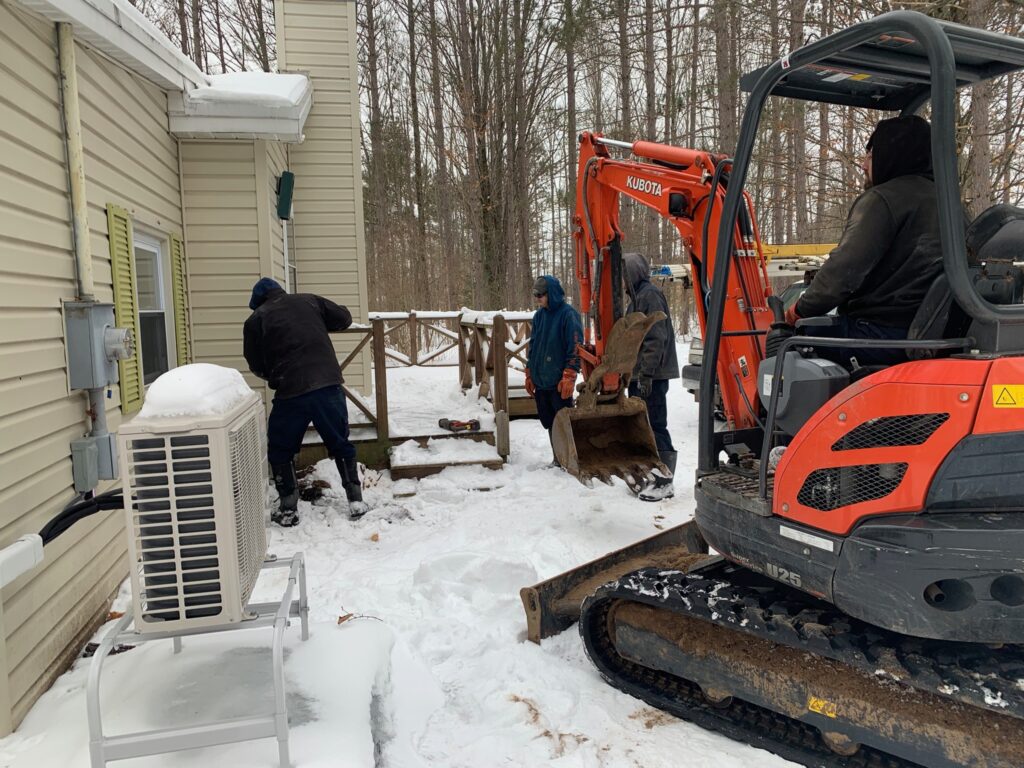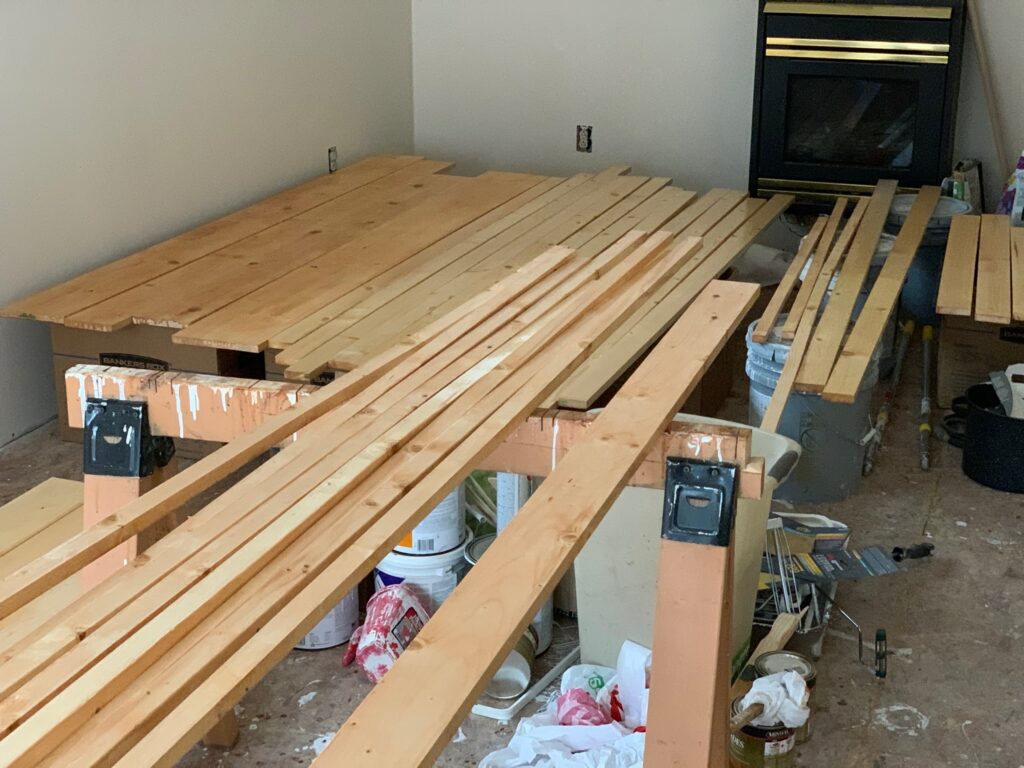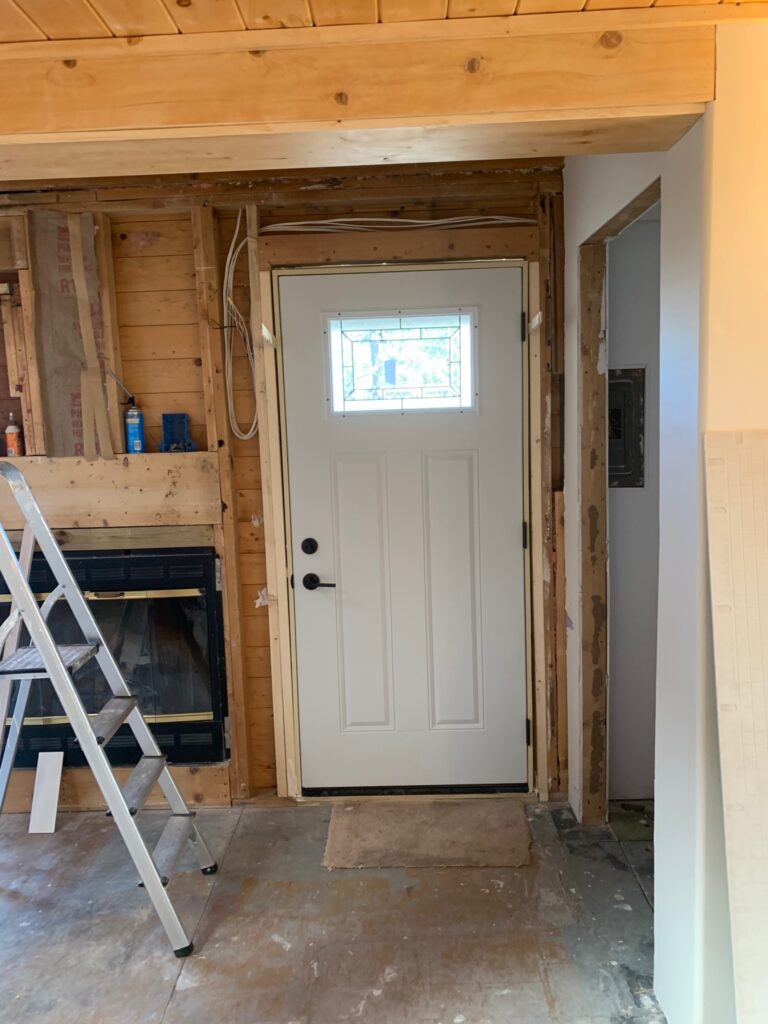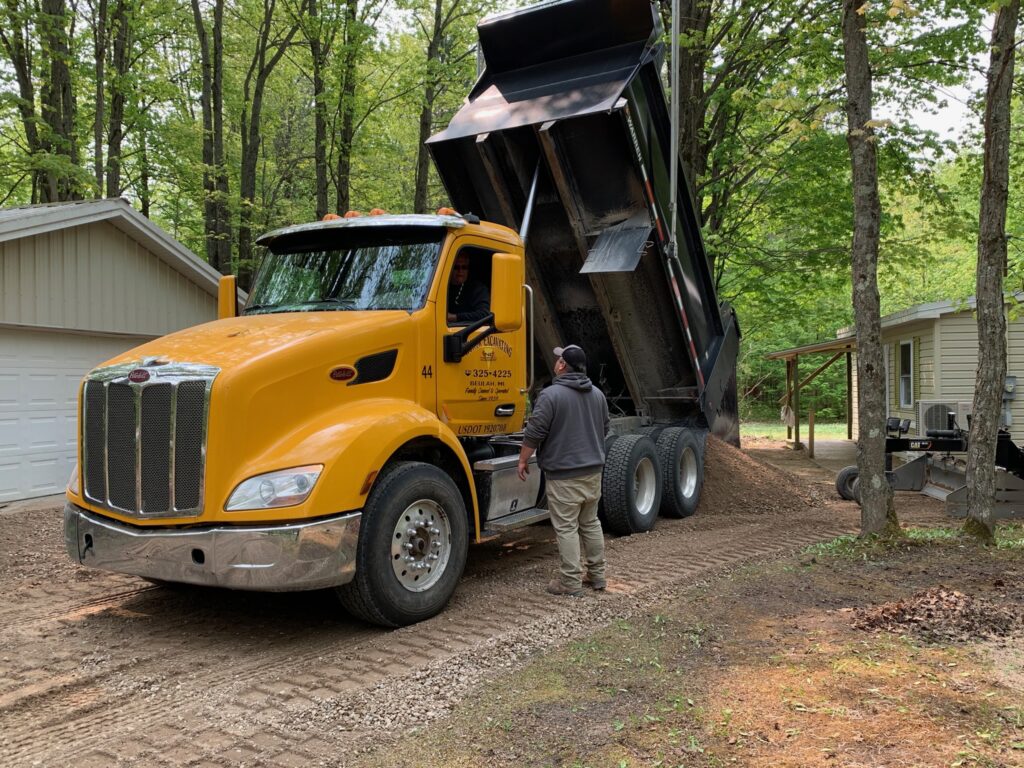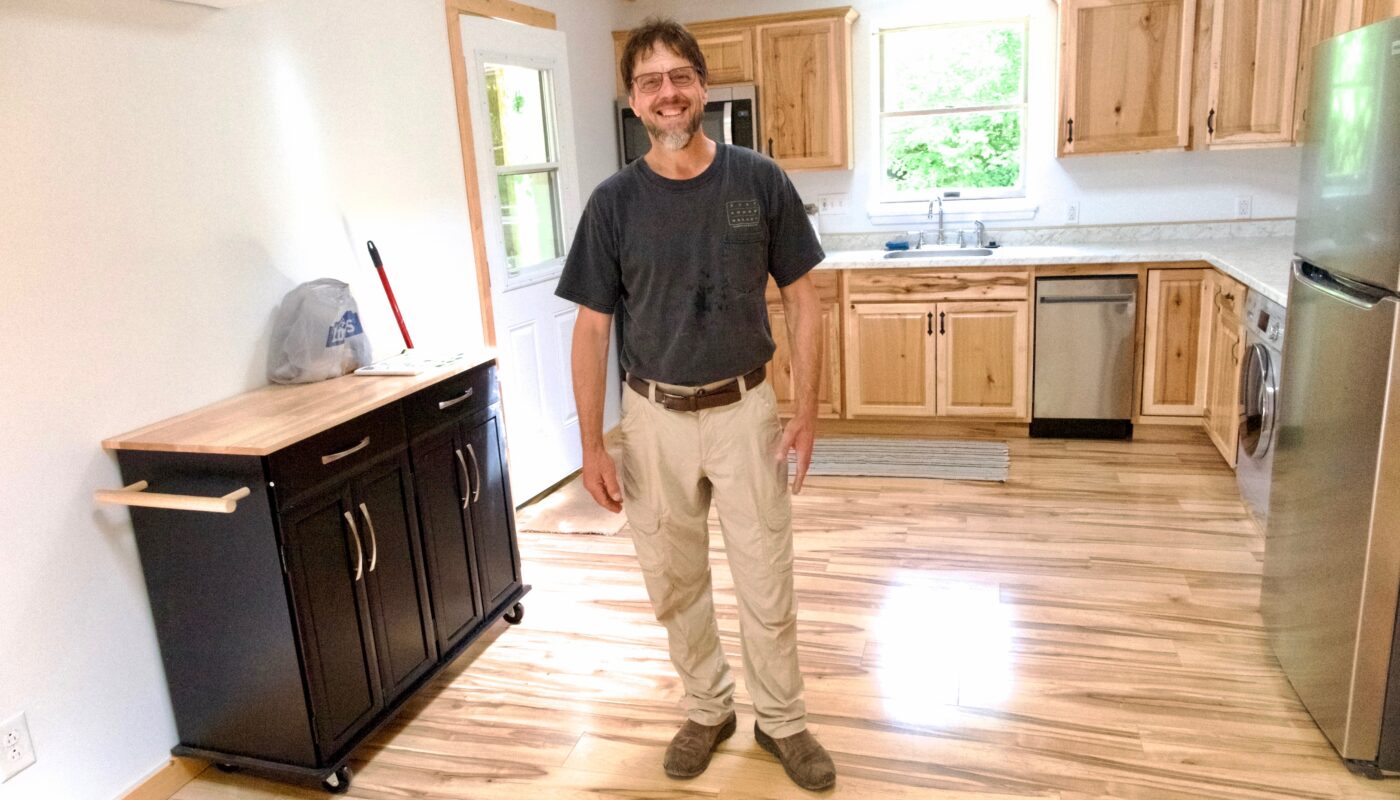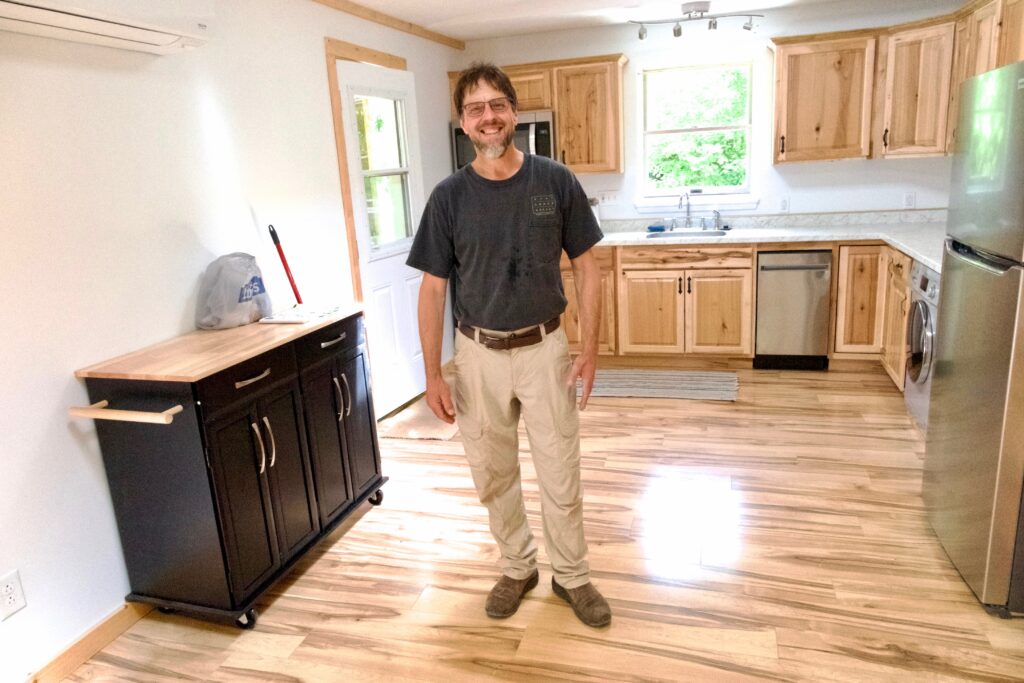
to renovate the 68-year-old Cinder Road home. (Photo/Keith Schneider)
Gabrielle sold her Somerset, KY home in March 2022 and moved to Michigan permanently. Part of the proceeds from the sale of her house, with an equal investment by yours truly, led us to purchase a Benzie County fixer-upper to renovate for rental. We finished the project in May, and through word of mouth it was rented immediately to an exemplary tenant who’s told us she loves her new home. Why shouldn’t she? It turned out beautifully. Better than we anticipated.
The project wasn’t easy and was far more extensive and therefore expensive than we ever thought possible. But worth every cent and every improbable, episodically impractical, and sometimes implausible change that occurred.
Our work really started in summer 2022 by scouting a couple of properties. Our goals were the same: find something affordable. Diversify our modest assets. Generate passive income.
The first house we toured was on Ballard Road south of Benzonia. It looked promising until we very carefully navigated a steep stairway into a century-old basement filled with coal and the iron body of a long dead furnace. It lay on its side, its dark flanks matted in dust, big as a walrus.
Next we visited an empty 40-year-old modular home near Frankfort that could have worked. But the ownership and title was complicated.
We bought the third home we toured. A little yellow bungalow on the south side of Cinder Road. Two beds, a bath, kitchen, living room, a big pole barn, and 5 wooded acres. Sixty-eight years old and, with apologies to the previous owner, several decades past where it would have been charming. Cracked plaster over old sheetrock. Walls and beams listing this way and that. Decaying dead mouse scent. Wires stuffed into electrical boxes like barbershop hair piled in a paper bag.
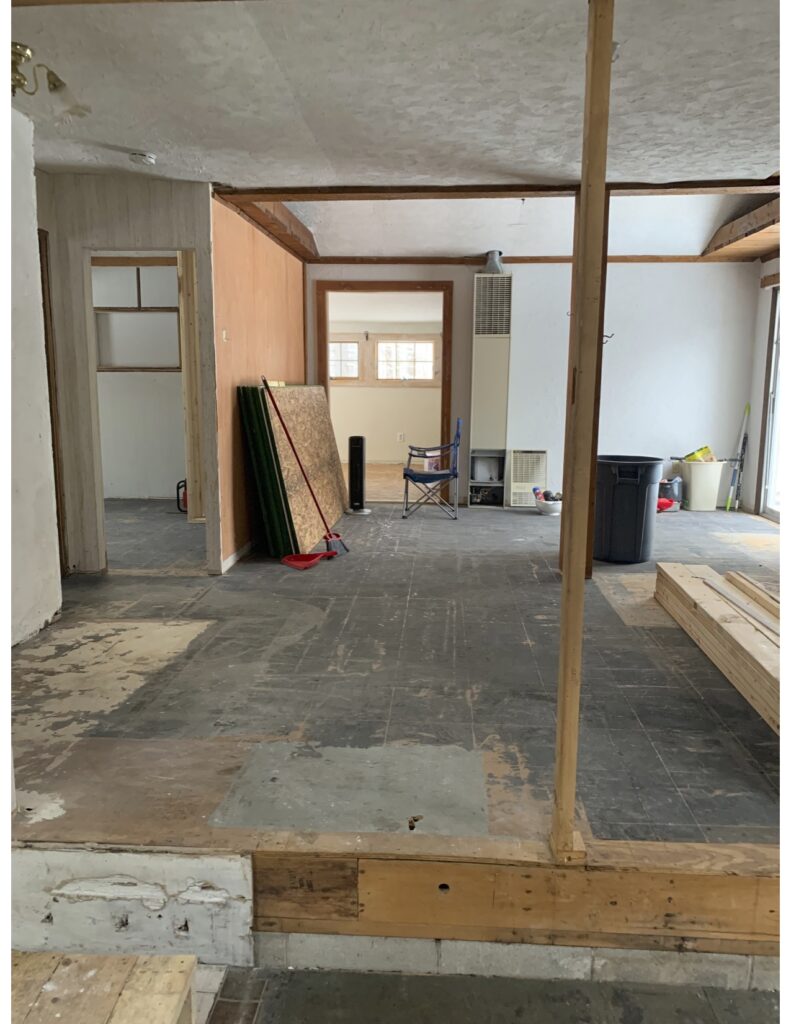
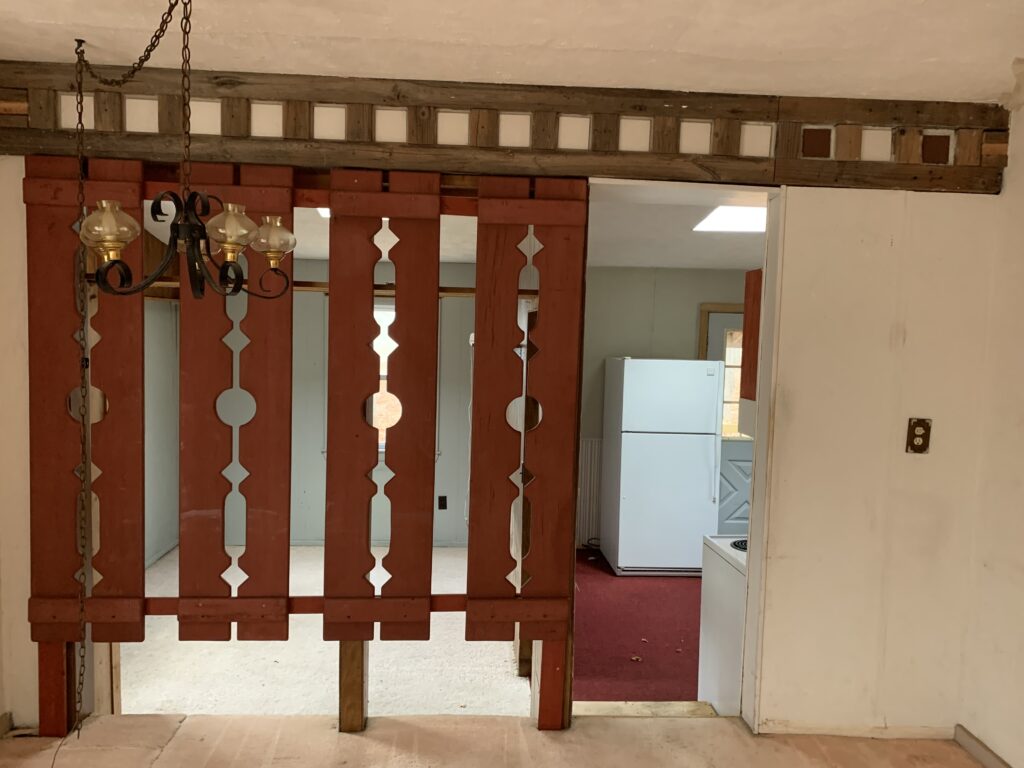
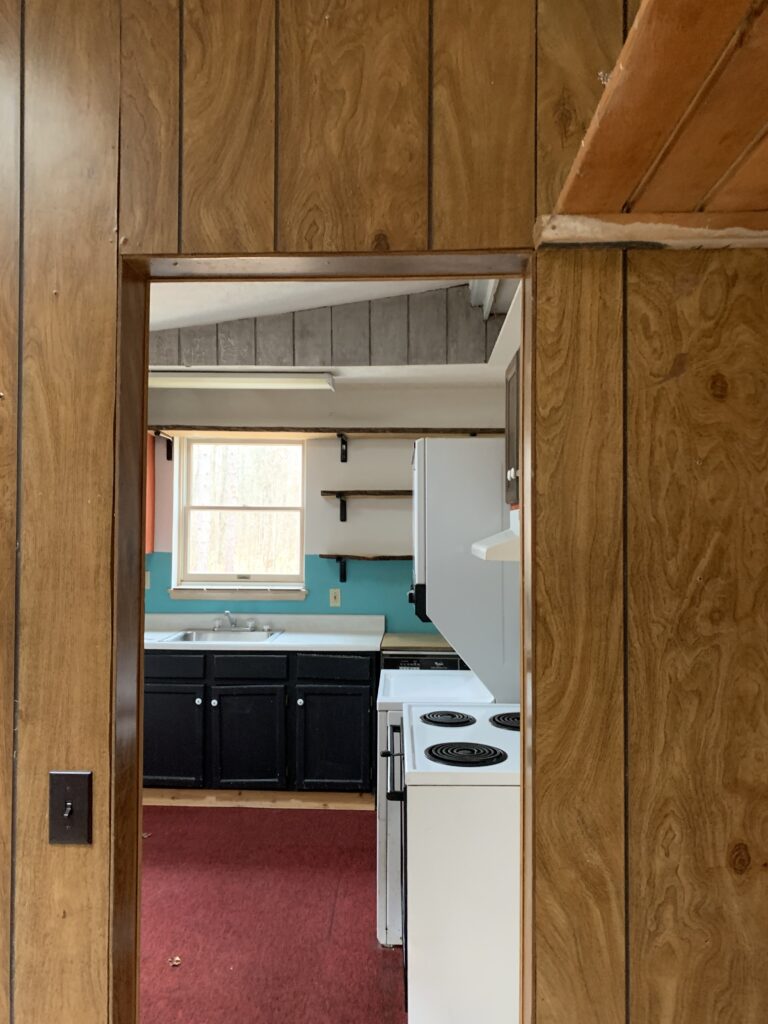
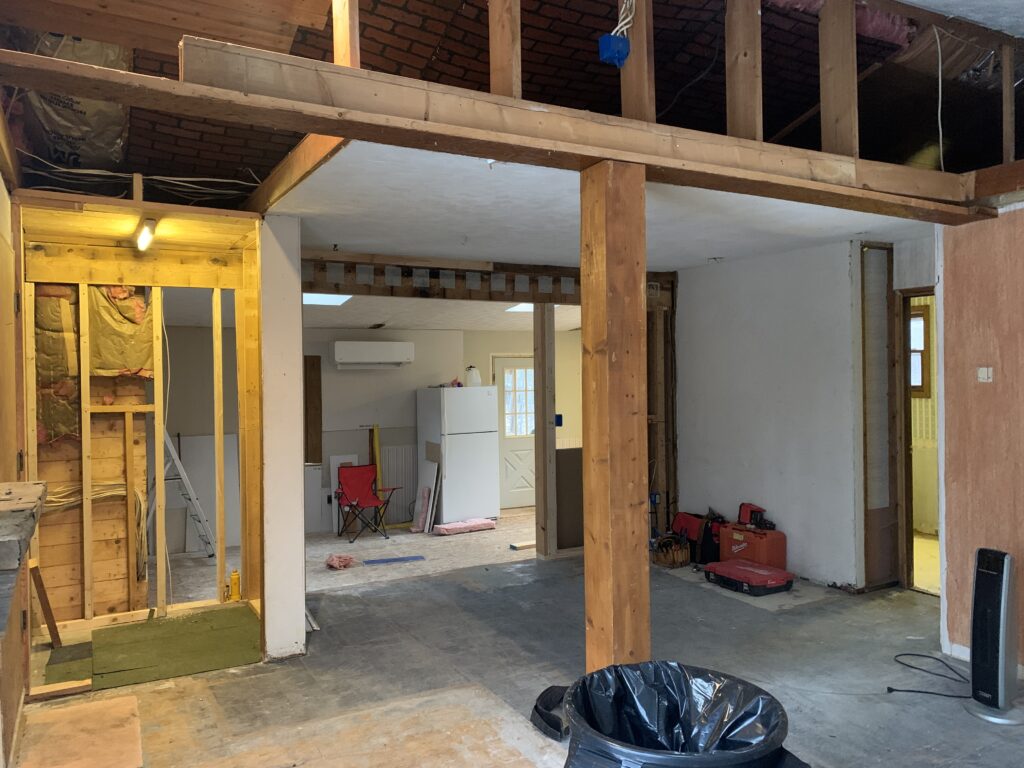
Gabrielle recognized the possibility, though. The sale price, $150,000, was affordable in Benzie’s soaring market. She liked the location close to everything in Benzie. Traverse City was 20 miles north. “What do you think?” she asked when I arrived to take a first look. Eyeing the advanced age of everything indoors, knowing the difficulty of what lay ahead, and as it turned out, vastly underestimating the cash cost of renovation – we weren’t financing any of it — I offered this response: “I hate it.”
Three weeks later, at the start of November 2022, the Cinder Road house was ours. Gabrielle named it Cinderella because she envisioned turning our obvious pumpkin into a Grand Coach. And that’s what we did. Renovation is not like raising a newborn. It’s close enough, though. Such a project takes up a lot of space and oxygen. Care and feeding of design ideas, materials, fixtures, colors, textures, appliances, and equipment is often an hourly requirement, and certainly a daily responsibility. Travel to and from the project, and to and from suppliers is endless. Disagreements are inevitable. Compassion and patience are mandatory. Love is indispensable.
And that’s just between Gabrielle and me. When we introduced the project to our contractor, a close friend and skilled craftsman, he said this: “Sell it. Now. Before you do anything.”
We didn’t listen. We asked him to take the project. He agreed. We were off on our collaborative adventure that lasted seven months.
Mind you Gabrielle and I have completed other dynamic projects together. We’ve traveled extensively. We lived in Salt Lake City on an assignment from the Los Angeles Times for six months. We married at the magnificent City Hall in San Francisco and threw a memorable bluegrass wedding party under a big tent in Kentucky. We moved her twice, the last time to our Benzonia home in Michigan. We make sure our children, grandchildren, sisters and brothers, nieces and nephews, and dear friends in many states know how much we love them.
Renovating a house turned out to be the most ambitious project we’ve undertaken. Straightaway we intended the house to serve as a long-term rental. Our rural county needs housing. Too many fixer-upper homes in our region are converted to short-term rentals. New homes under construction are too expensive for working families. Business owners cite the housing shortage as the most important impediment to recruiting staff.
Gabrielle and I are public interest-minded people. She founded and directed very successful music festivals in Kentucky and was a non-profit executive. I founded a prominent non-profit land use organization in Michigan. Long-term rental housing, in a tight market, was our goal. So was the monthly income that the project would generate.
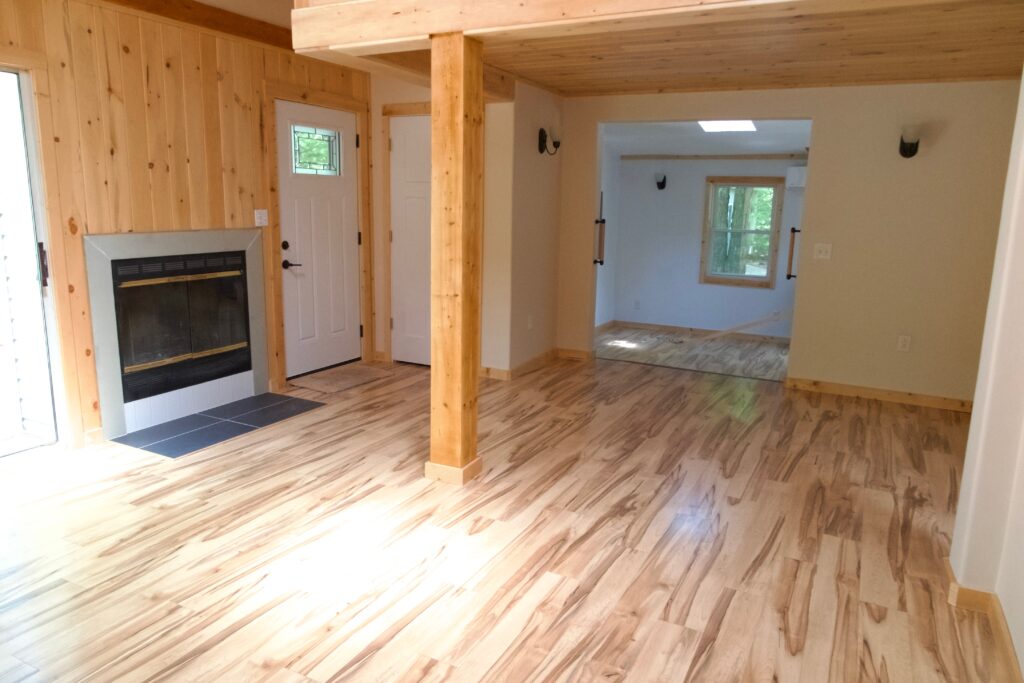
We did not have the house inspected prior to closing. If we had we probably would have backed away. Inspection would have revealed that almost every feature of the old house’s infrastructure would need to be replaced. A new heating and air conditioning system. All new plumbing and electrical. Support beams. Wall studs. Drywall. All new kitchen and bathroom appliances. All new insulated flooring. All new insulation in the walls and ceilings. New closets. Installing tongue-in-groove knotty pine ceilings and one solid wood wall in the living room. All new baseboards and trim. All new doors and light fixtures. Installing electricity in the pole barn. A total reworking of a long semi-circular driveway. Even a new well, pump and pressure tank.
The scale of what was required initially unmoored our contractor, a dear friend. A few weeks after we started he started talking about abandoning the work because he wasn’t sure about taking on so many tasks by himself. I told him don’t look at all the demolition and reconstruction in total. Consider each as a separate assignment. Complete it and move on to the next. I told him I confronted the same challenge in my work, which encompassed big and complex projects that could be equally intimidating. But I break the whole into discreet pieces, separate tasks, and set out a clear path to complete one after the next. I guess it helped. He stayed.
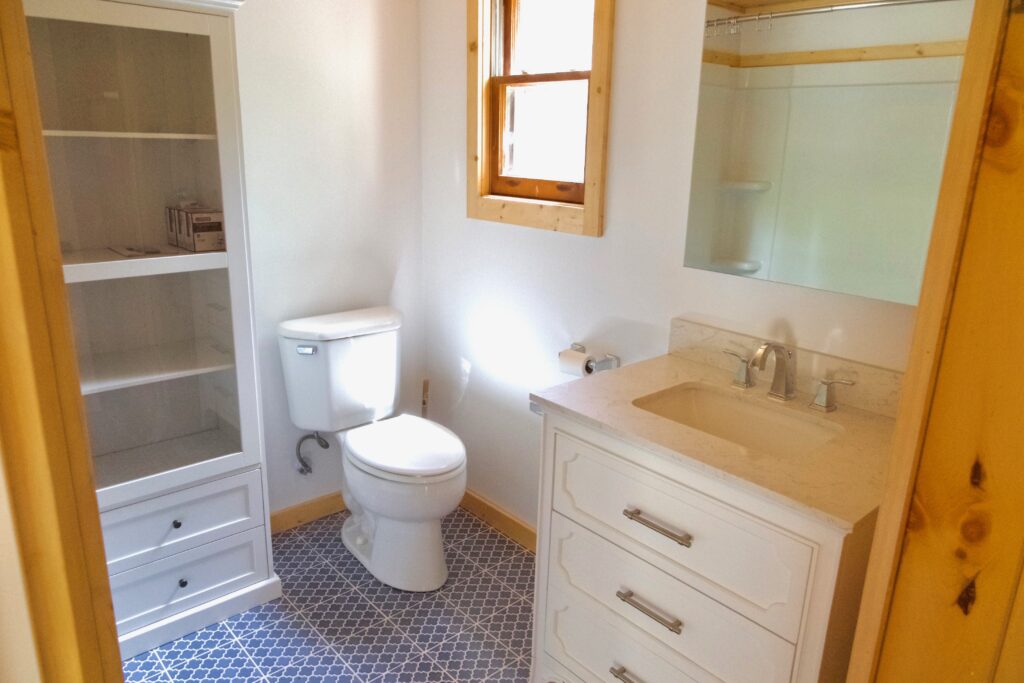
The cost of what we were doing unmoored me. We pulled out a wall gas heater and installed a heat pump for $6,600. A new well and pressure tank was $10,000. Rebuilding the circular drive was $2,550. Kitchen cabinets, refrigerator, washer/dryer combi, stove, microwave, dishwasher – $7,000. Tub/shower, tile, vanity, mirror, heater – $4,000. Flooring, drywall, construction timbers, paint, doors, lighting, wiring and plumbing fixtures – $15,000. Labor – $45,000.
Every day we spent money. More than I’d spent on anything in my life. At one point I bought a load of tongue and groove pine boards to install on walls and ceiling. Renting a truck and paying the Amish dealer cost about $1,000. Gabrielle told me “Well, at least there were only three zeros.” In all the renovation cost around $90,000, plus utilities, taxes, and insurance. The total for the house purchase and interior renovation – $240,000.
The finished home reflects the investment and the hours of work we all put into it. Jeff wired and plumbed, built walls, installed beams and subfloors. He measured and cut, hammered and trimmed with such precision and persistence that by January the house ceased to lean and droop like it had. It was straight and true. It was like watching the recovery of a wheelchair bound patient grow stronger until he could grip the hand of his therapist and stand up.
Emery Gyr, another close friend, helped in February to finish drywall, install the pine boards, and tile the bathroom floor. He returned in April and May to expertly lay the vinyl plank flooring and nearly all the trim.
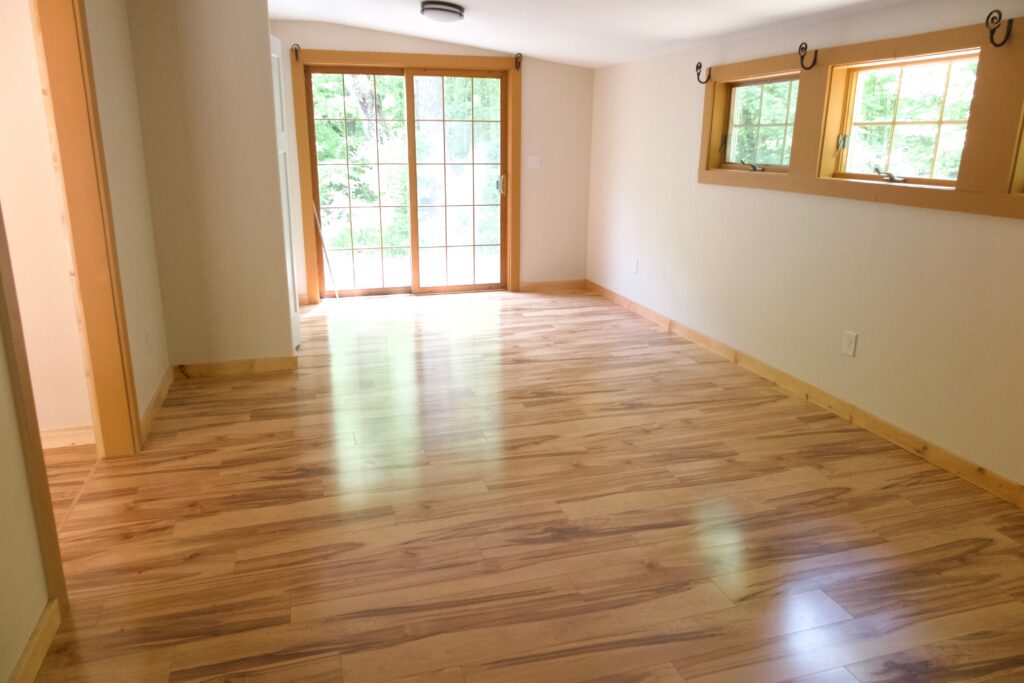
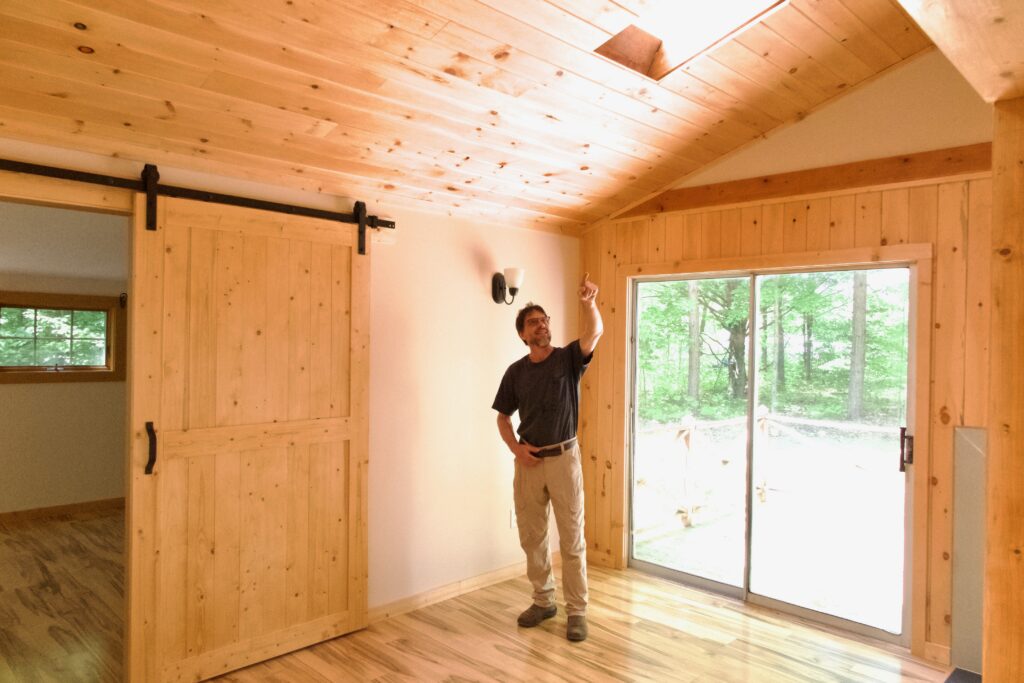
Gabrielle did most of the design work and spent a lot of time driving back and forth to Traverse City (mostly to Lowes) to make purchases. She and I painted the interior one weekend in late March. We polyurethaned all the pine boards, thousands and thousands of feet of them. I dug a trench to wire the garage and performed other unskilled tasks as needed. One week I took off from writing to help lug heavy boxes and sort the flooring panels for installation. Loved it.
By the end of winter the beauty of what we all were doing was becoming apparent. The pine walls and ceiling bathed the rooms in rich gold ambiance. Gabrielle chose a delightful pale desert sand color for walls that really works. The bathroom is cozy and warm. The kitchen — white walls, hemlock cabinets, new appliances — is large and bright from two skylights. The bedrooms are inviting, and each was completed with new built-in closets.
Almost every facet of the house is new except the fireplace, toilet, and septic system. I spent a week in late May raking leaves, doing a bit of landscaping, neatening up stacks of downed limbs, and marveling at the way the house set so comfortably in its place in the woods. My last two assignments before our tenant moved in were these: power washing the decks and pasting new numbers on the old post box.
It’s been four weeks since then. I miss the place. Sure do.
— Keith Schneider
